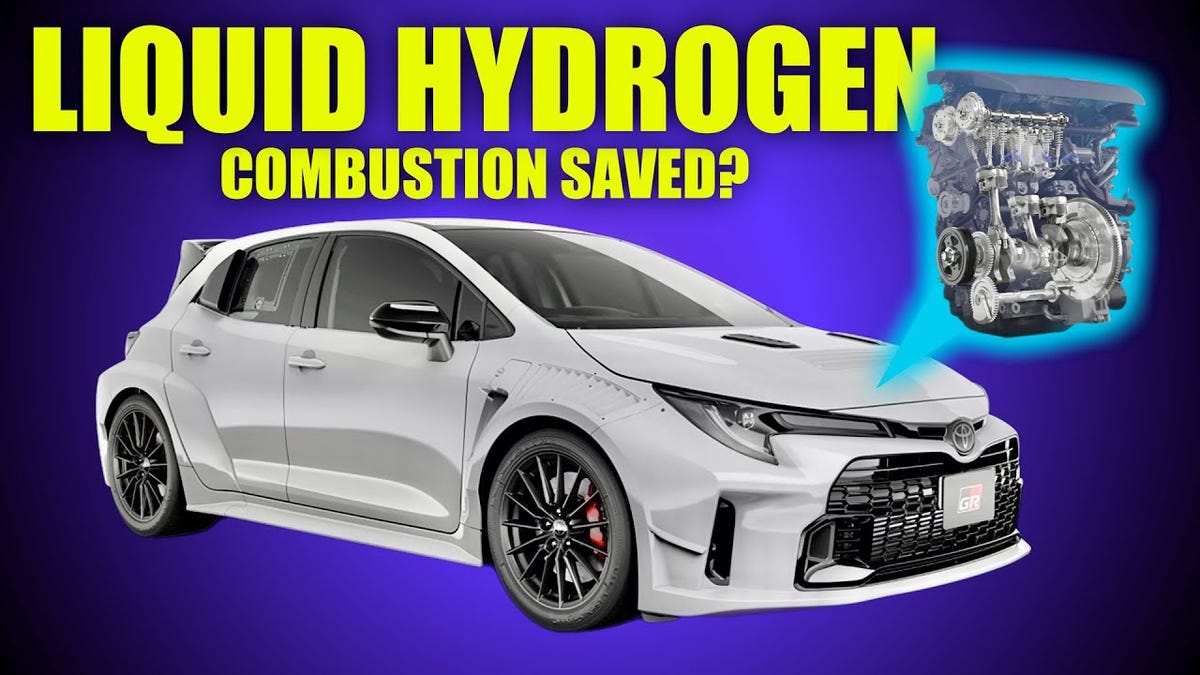Recently, Toyota entered a hydrogen-powered GR Corolla in the 24-hour race at Fuji. But it wasn’t powered by a hydrogen fuel cell like you see in the Toyota Mirai that uses hydrogen to generate the electricity that actually powers the car. Instead, it used a liquid hydrogen combustion engine. In theory, it gives you the sound and driving characteristics that enthusiasts love about internal combustion engine cars but doesn’t release any harmful emissions.
So a liquid hydrogen combustion engine is basically the best of both worlds, right? All Toyota needs to do is spend a few more years perfecting the technology, and the racing world will be saved from the scourge of electric cars that are too heavy and too quiet. Then, after building out the hydrogen fueling infrastructure, it’s only a matter of time before passenger cars are also freed from their need for big, heavy, expensive batteries. Take that, Tesla!
Not necessarily. Barring some major and likely miraculous technological breakthroughs, it’s unlikely that liquid hydrogen combustion engines will ever take over racing, much less end up on the streets selling like Camrys and Corollas. And that’s not merely the opinion of some idiot Jalopnik writer. It’s also the opinion of the internet’s favorite car nerd, Jason Fenske of Engineering Explained fame.
Engineering Explained’s latest video takes a deep dive into the math and science behind Toyota’s liquid hydrogen combustion engine and (spoiler alert!) comes to the conclusion that it’s more of a fun engineering exercise than something that will go mainstream any time soon, even in the racing world. For example, due to how cold liquid hydrogen is, engineering a durable fuel pump is incredibly difficult. In fact, during the Fuji race, Toyota’s team had to replace the fuel pump twice, and each change took about three and a half hours.
Even if you’re not a racing expert, you can probably understand that spending seven hours of a 24-hour race replacing parts is less than ideal, and if every team had to do that, it would make for a much less interesting race. But that’s a big problem, it’s also not the only reason to be skeptical of liquid hydrogen combustion engines in racing. For that, you’re going to have to watch the video below if you want to find out.

